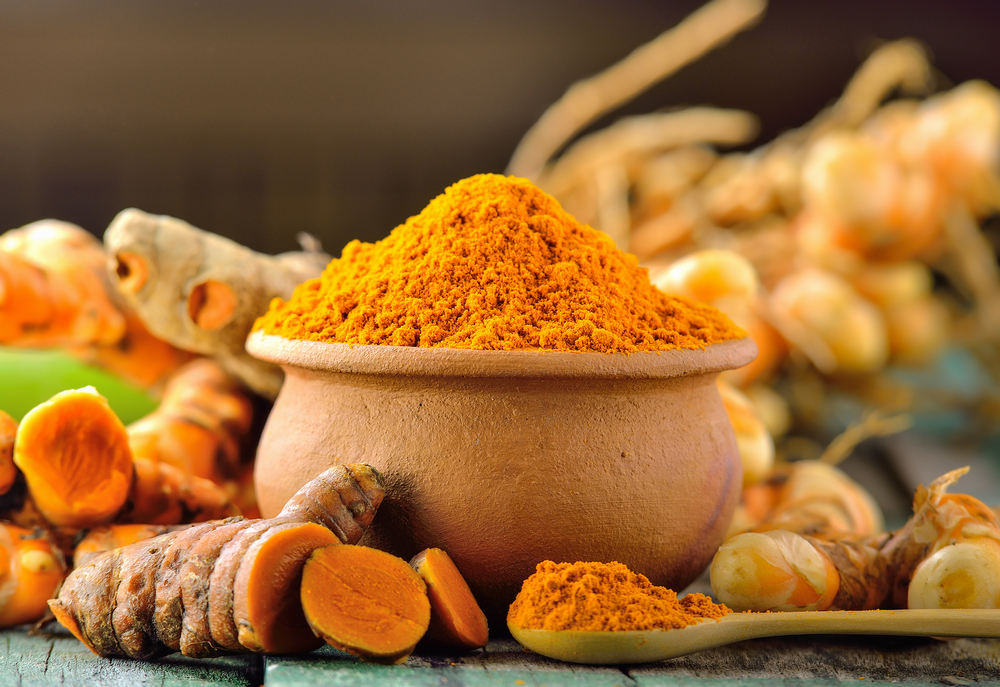How Turmeric Proves To Be Benefical For Managing Symptoms Of Arthritis
Turmeric or ‘Curcuma longa’ is a common herb known and used for its sharp taste and peppery aroma. Turmeric forms a major part of any cuisine and dishes that feature the use of herbs and spices. It is the most versatile ingredient which can be incorporated in a number of recipes and beverages across a variety of cooking styles.

Turmeric is rich in anti-inflammatory, antimutagenic, anticarcinogenic, antifungal, antibacterial, antiviral and most important antioxidant properties. The herb is also loaded with healthy nutrients including zinc, magnesium, iron, copper, calcium, [potassium, vitamin K, vitamin E, vitamin C, niacin, dietary fibers, and proteins.
General health benefits of turmeric
- Curcumin is the active ingredient in turmeric, which also promotes anti-inflammatory properties. This compound makes turmeric help cure inflammation in a number of medical conditions.
- Common medical conditions result in oxidative damage by way of free radicals. Radicals react with organic substances in the body and can cause damage to the vital proteins and DNA. Curcumin in turmeric is a good anti-oxidant compound that helps fight free radicals and boosts the release of antioxidant enzymes naturally.
- Studies have shown that curcumin can also promote brain activity and increase performance levels, thus providing a solid defense against possible brain diseases and also help counter a functional decrease in the brain activity.
- The main compound curcumin in turmeric also helps lower the risk of heart disease. Curcumin helps improve the function of endothelium which forms the lining of blood vessels in the organ. The lining is essential to control blood pressure, flow, and regulate clotting. Curcumin improves this function significantly and promotes a healthy heart.
- Oxidation and inflammation play a major role in many common heart diseases, cancer ailments, and even Alzheimer’s. Curcumin in turmeric effectively fights these symptoms and provides long-term relief thus increasing longevity.
- Depression is one of the silent killers that is affecting a majority of the people who lead hectic and stressful lives. Curcumin is an effective antidepressant that also helps boost brain levels.
One of the major health benefits of incorporating turmeric into your daily diet is its effectiveness against treating and managing symptoms of arthritis.
Health benefits of turmeric for arthritis
Arthritis is a medical condition which results in the swelling and inflammation of joints causing persistent pain and discomfort. Osteoarthritis, rheumatoid arthritis, infectious arthritis, and gout are among the common types. The stiffness of joints, muscle ache, and pain, inability to use limbs due to restricted and painful movement, fatigue, and loss of flexibility are among the common symptoms of arthritis.
Among medications, treatment options including surgery and joint replacement. However, certain home remedies and self-care options that promote the use of turmeric can help fight manage the pain and control the symptoms to a great extent. These include:
- Natural painkiller
The inherent anti-inflammatory properties of curcumin in turmeric prove to be an effective painkiller by controlling inflammation. Curcumin also has a number of therapeutic effects to control swelling and pain caused due to arthritis. - Helps with chronic pain
Joint degradation and bone loss are some of the symptoms of arthritis. However, the inflammation can also spread to another vital organs and parts. Curcumin in turmeric helps control the inflammation not just for arthritis, but for the associated health complications as well. - Cell death reversal
Curcumin in turmeric helps control the degradation of skin cells caused due to psoriatic arthritis. Inflammation is also one of the major triggers of skin problems. - Fights infections
Fungal and bacterial infections are common in psoriatic arthritis. Curcumin in turmeric is loaded with antimicrobial properties which help curb the infection by suppressing the growth and spreading of bacteria, viruses, and fungi. - Therapeutic effect on genes
Curcumin impacts gene expressions in your body to regulate their activity. Curcumin regulates the proteins that control transcription factors to regulate the conversion of genetic information in gene expressions. - Prevents the progressive condition
In rheumatoid arthritis, there are certain cells which are immune to medications and treatment. Curcumin in turmeric, however, provides a targeted relief and prevents these destructive cells from producing inflammatory agents by increasing the activity of proteins to destroy these cell functions. - Manages autoimmune conditions
Rheumatoid arthritis and Lupus both are autoimmune conditions which force the immune system to attack healthy cells of the body. Studies show that curcumin in turmeric helps mimic activities of the antibodies to control immune responses tackling autoimmune disorders. - Improves bone health
Inflammation is one of the most prominent symptoms of arthritis and leads to degradation of overall bone, tissue, and cartilage health. Curcumin in turmeric prevents the thickening of joint fluids that lead to cartilage damage. It also protects bones from erosion and losing density while preserving cell function to restore bone health gradually.











